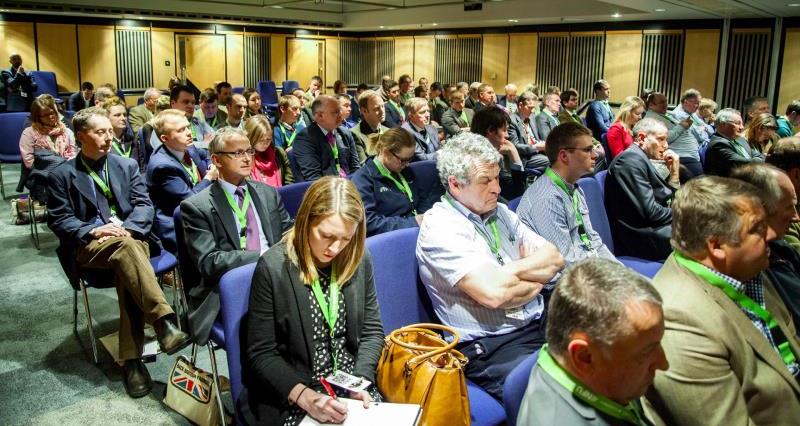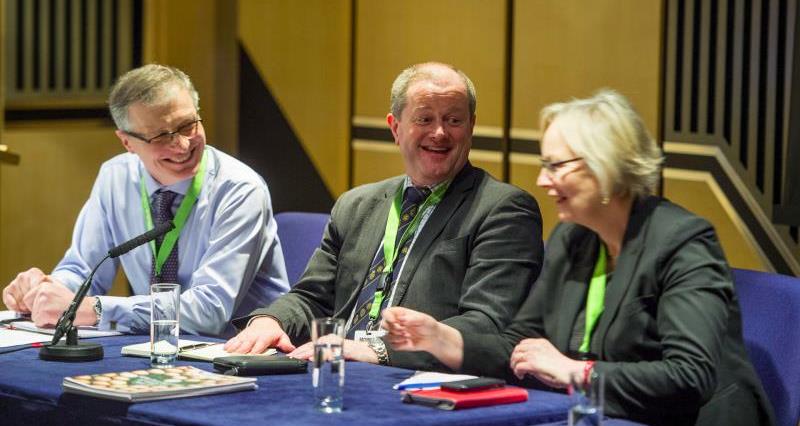“If I had my chance to farm I would be a broiler producer, and I will tell you why: it’s organised – and in a bank that’s certainly one thing they have taught me to be – it’s measured, it’s driven and, I make no bones about it – it’s profitable,” he said.
Mr Wilkinson went on to say that other livestock sectors wished that they were in the same situation as poultry at the moment.
Also speaking at the session, South West MEP Julie Girling told delegates that she was for staying in the EU, because she doesn’t see how the UK could replace access to such a huge market and the idea that we could establish a functioning relationship with Europe the day after Brexit was a ‘benign fantasy’.

The public’s perception of the industry was also raised with many concerned that customers were not always well informed as to how their food is produced. Ms Girling said that she wanted to see the bucolic image of farming challenged and the stigma removed from the idea of intensification. She did question if the industry actually had a negative image.
Delegates also discussed biosecurity as a means of reducing exposure to avian influenza (AI), looking at the cleaning protocols of other countries to potentially reduce the amount of time trade restrictions are in place, and carcass utilisation.
Anti-microbial resistance was another area of concern, as the transatlantic trade talks with the USA (TTIP) might open the doors to produce that has been exposed to more antibiotics than the EU permits.
More from NFU16
- Our Conference hub page
- NFU16: Sustainability - how McDonald's woke up
- See pictures from #NFU16 on our Flickr stream, here.
- NFU16: Our sustainable food service call
- NFU16: Farmers to hear Brexit debate
- NFU16: Truss on BPS, TB and the EU
- NFU16: BPS delays 'unacceptable, a fiasco'
- NFU16: Make profits central, says Raymond
- NFU16 - watch the opening video
- Join in on social media
- The NFU16 programme
- Watch live
- 2016 officeholder elections
Peter Cumbers and Tom Willings talked about the sexing of male chicks in the shell. At the moment. The technology is too invasive and expensive and is not viable. Mr Cumbers raised the point that in the UK the gassing of male chicks was more humane and we do not use masceration, as in Germany. Plus the chicks are not wasted and are sold to zoos.
Delegates also discussed biosecurity as a means of reducing exposure to avian influenza (AI), looking at the cleaning protocols of other countries to potentially reduce the amount of time trade restrictions are in place, and carcass utilisation.
Anti microbial resistance was another area of concern as the transatlantic trade talks with America (TTIP) might open the doors to produce that has been exposed to more antibiotics than the EU permits.
Ms Girling confirmed that the EU was not going to relax its stance on antibiotic use as this is a huge area of concern.
James Hook said that his firm has reduced its use of antibiotics, but was looking at ways of cutting AMR further.
Tom Willings of Noble Foods said that producers are looking at more docile white birds as a way of managing a future beak trimming ban. The problem is that consumers expect a brown egg and no producer wants to be the first to test the water.
